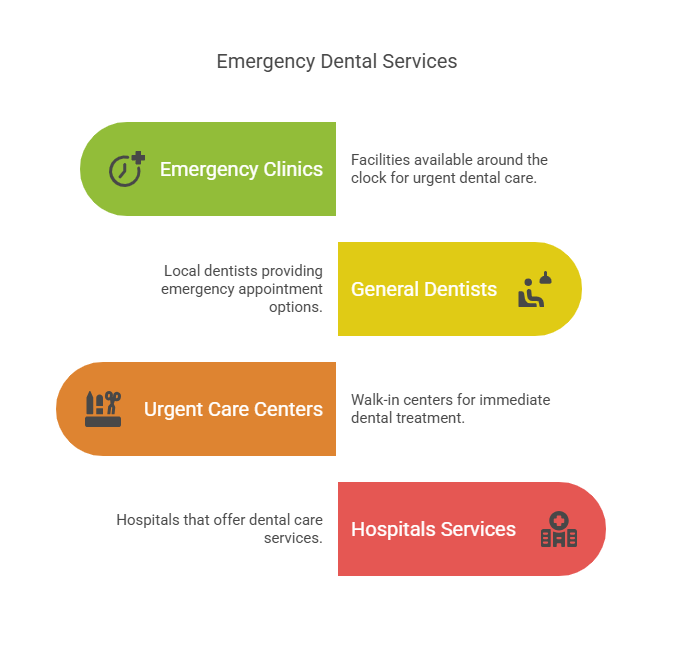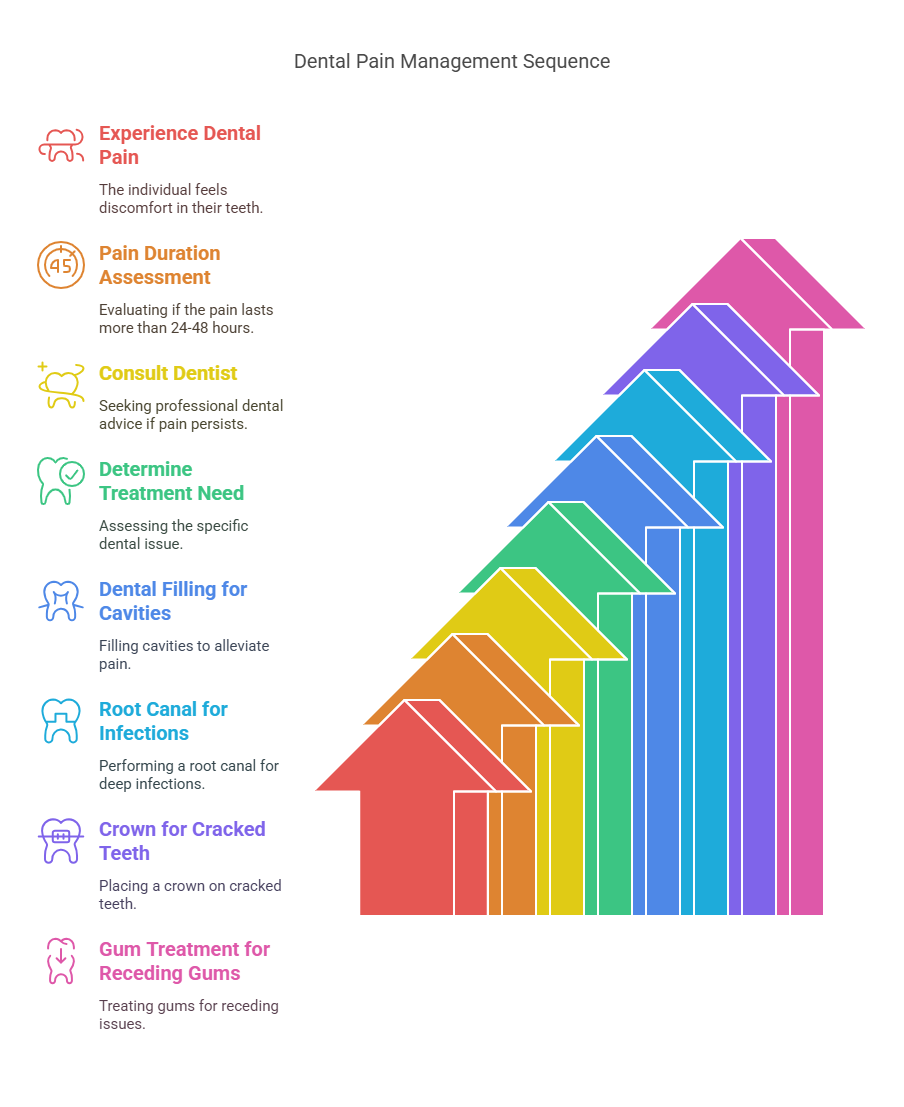A broken denture can be a stressful and urgent situation, affecting your ability to eat, speak, and smile confidently. If you’re searching for a broken denture emergency dentist near me in Weymouth, MA, you need quick and reliable solutions. In this article, we’ll discuss the causes of broken dentures, emergency repair options, and how to find the best emergency dentist in Weymouth, MA.
Common Causes of Broken Dentures

1. Wear and Tear Over Time
Dentures experience daily stress from chewing and talking, leading to gradual weakening and potential fractures.
2. Accidental Drops
Dropping your dentures on a hard surface can cause cracks, chips, or even break them in half.
3. Improper Fit
Ill-fitting dentures can exert uneven pressure, making them more susceptible to damage.
4. Chewing Hard or Sticky Foods
Hard foods like nuts and sticky foods like caramel can put excessive pressure on your dentures, leading to fractures.
5. Using the Wrong Cleaning Methods
Using hot water or harsh chemicals can weaken the material, causing dentures to warp or crack.
What to Do in a Broken Denture Emergency

1. Assess the Damage
Check whether the denture has a minor crack, a broken tooth, or a full break.
2. Avoid Using the Damaged Denture
Wearing a broken denture can cause discomfort or further damage.
3. Call an Emergency Dentist Immediately
Search for an emergency dentist in Weymouth, MA who specializes in denture repairs.
4. Use a Denture Repair Kit (If Necessary)
Temporary repair kits can provide a short-term fix until you visit a professional.
5. Keep Your Broken Dentures in a Safe Place
Store them in water to prevent drying out or further damage.
Emergency Denture Repair vs. Replacement
When Can a Broken Denture Be Repaired?
- Minor cracks and chips can often be repaired quickly.
- A broken tooth on the denture can be replaced without remaking the entire set.
When Is a Denture Replacement Necessary?
- Severe fractures or complete breaks may require a new denture.
- If the denture no longer fits properly due to jawbone changes.
Finding an Emergency Dentist in Weymouth, MA
What to Look for in an Emergency Dentist
- Availability: Look for same-day or next-day appointments.
- Expertise in Denture Repairs: Choose a dentist with experience in prosthodontics.
- Positive Patient Reviews: Read testimonials for reliable service.
- Advanced Technology: Modern dental labs can offer quicker repairs.
Top Emergency Dental Services in Weymouth, MA
- Same-Day Denture Repair: Fast fixes for minor issues.
- Denture Relining & Adjustments: Ensures a comfortable fit.
- Full Denture Replacement: Custom solutions for severe damage.
Tips to Prevent Denture Damage
1. Handle with Care
Always hold dentures over a soft towel or water-filled sink when cleaning.
2. Clean Your Dentures Properly
Use only approved denture cleaning solutions and lukewarm water.
3. Avoid Hard and Sticky Foods
Stick to softer foods and cut harder items into small pieces.
4. Schedule Regular Dental Check-Ups
Ensure your dentures fit well and receive professional maintenance.
5. Store Dentures Correctly
Keep them in water or denture solution when not in use.
People Also Ask
1. Can a broken denture be fixed at home?
Temporary fixes exist, but professional repair is recommended.
2. How much does emergency denture repair cost in Weymouth, MA?
Costs vary, but minor repairs range from $50 to $300.
3. How long does it take to repair a broken denture?
Same-day repairs are often possible for minor damage.
4. What should I do if my denture breaks at night?
Store it safely and contact an emergency dentist in the morning.
5. Can a cracked denture be repaired?
Yes, small cracks can often be fixed without replacement.
6. Should I superglue my broken denture?
No, superglue can be toxic and may damage the denture material.
7. How often should dentures be replaced?
Most dentures last 5-7 years before needing replacement.
8. Can a missing denture tooth be replaced?
Yes, a dentist can replace a missing tooth without remaking the denture.
9. Will my insurance cover emergency denture repair?
Many insurance plans offer partial coverage for denture repairs.
10. Where can I find an emergency denture repair dentist near me?
Look for prosthodontists or emergency dental clinics in Weymouth, MA.
Frequently Asked Questions (FAQs)
1. What should I do if my denture breaks?
If your denture breaks, avoid using DIY repair kits. Contact an emergency dentist in Weymouth, MA immediately for a professional repair or replacement.
2. Can a broken denture be fixed?
Yes, minor cracks or chips can often be repaired. However, severe damage may require a new denture.
3. How long does it take to repair a broken denture?
Most emergency dentists can repair a denture within a few hours or by the next day, depending on the severity.
4. Can I eat with a broken denture?
No, eating with a broken denture can worsen the damage and cause discomfort. Seek emergency dental care instead.
5. What are the common causes of broken dentures?
Dentures break due to wear and tear, accidental drops, poor fit, or biting into hard foods.
6. Will I need a new denture if mine breaks?
Not always. A dentist will assess the damage and determine whether a repair or replacement is needed.
7. How much does it cost to fix a broken denture?
Costs vary depending on the repair, but minor fixes range from $50 to $300, while replacements cost more.
8. Can I use super glue to fix my dentures?
No, super glue is toxic and not safe for oral use. It also creates an uneven bond that can lead to discomfort.
9. How can I prevent my dentures from breaking?
Handle them carefully, avoid hard foods, clean them properly, and schedule regular dental check-ups.
10. Where can I find an emergency dentist for broken dentures in Weymouth, MA?
You can find emergency dental services by searching “broken denture emergency dentist near me in Weymouth, MA” or calling a local dental clinic for immediate assistance.
Conclusion
A broken denture can disrupt daily life, but finding an emergency dentist in Weymouth, MA ensures a fast and effective solution. Whether it’s a minor repair or a full replacement, acting quickly can prevent further discomfort. If you’re experiencing a denture emergency in Weymouth, MA, don’t wait—contact a local emergency dentist today for prompt assistance! Schedule an appointment with an emergency dentist today, please visit Comfort Dental Weymouth, 47 Washington St, Weymouth, MA 02188, (781) 337-3300.





































